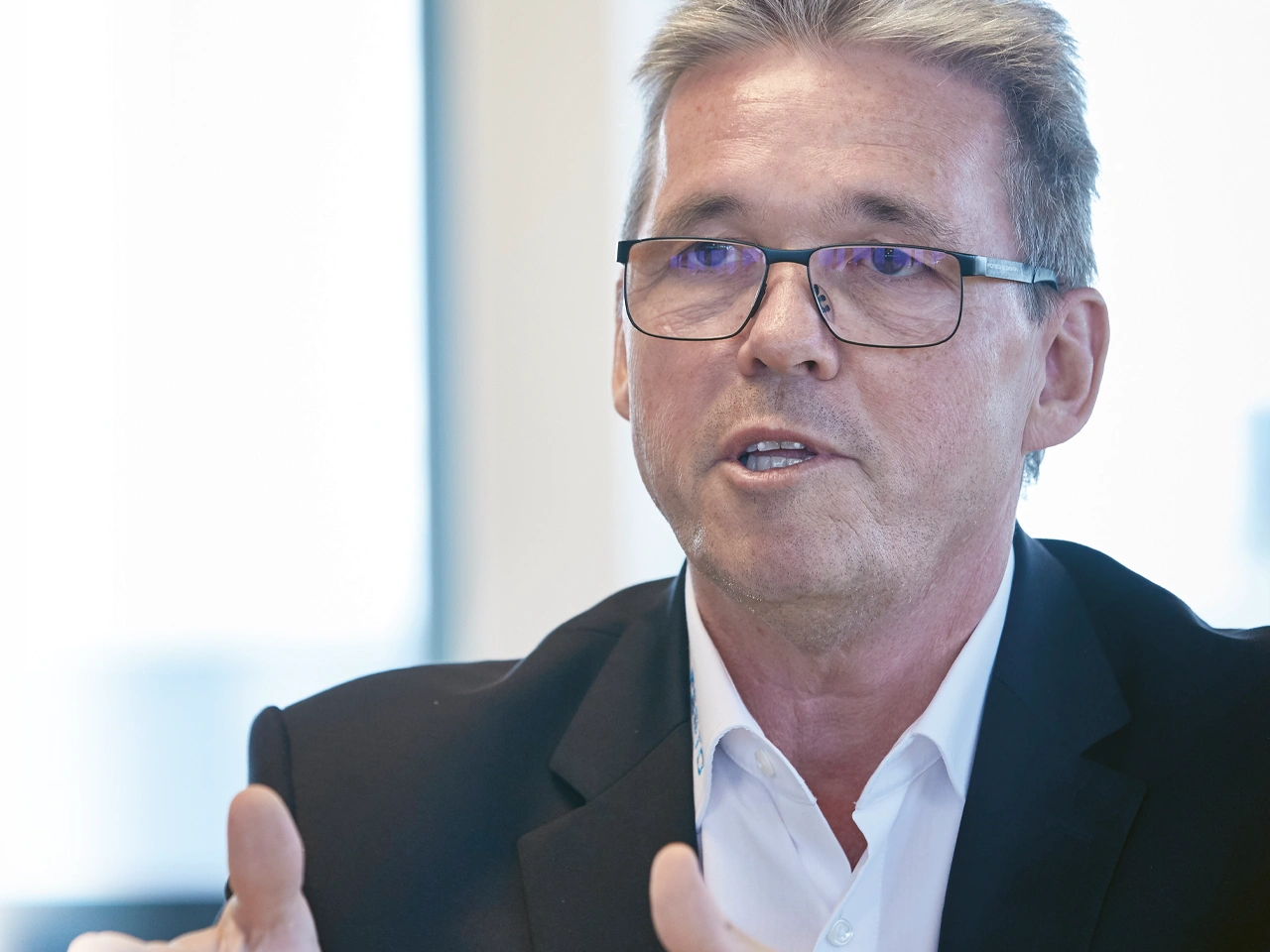Home > Company > Publications > Bruno Huber / Daniel Langmeier
The local component supplier industry today and tomorrow: locational advantage – is that sufficient?
Digitalisation and globalisation in the industrial sector are impacting on Swiss industry’s collaboration with local procurement partners. What changes are to be expected and how is the component supplier industry responding to the changing needs of its customers?
In a panel discussion, three representatives of the local component supplier industry address this controversial topic and try to find answers. Moderation: Andreas Bachmann, Sales Director at Bachofen AG
Andreas Bachmann (AB): Let’s start by getting an overview of the situation. What is going on in the market, and what challenges are we facing as local procurement partners?
Daniel Langmeier (DL): It is definitely the high cost level in Switzerland that is causing problems for us and our customers. This results in international businesses in particular increasingly moving their production abroad.
Bruno Huber (BH): Correct. As a component supplier, we have to succeed in fully mirroring the global footprint of our customers. The trend towards globalisation and digitalisation in the context of depersonalisation also means that interpersonal contact will become less important.
AB: As a local component supplier industry, what are our strengths and opportunities?
BH: Thanks to high levels of training and organisations with roots in the local area, we are in an ideal position to fulfil important customer needs such as customer proximity, responsiveness and service orientation. The good understanding of our customers’ business processes creates additional added value.
Daniel Bachofen (DB): I believe that being there locally is key. If, on behalf of a machine manufacturer, we want to make a substantial contribution to innovation, to the development of new systems and to increased productivity, then we have to listen, understand and follow their thinking.
BH: The underlying conditions in Switzerland are very good and I see these as a great opportunity for us and our customers. Given the current trends, we must take care of these if Switzerland wants to maintain its importance as a place to do business.
AB: But digitalisation cannot be explained away.
BH: It is clear that a change is taking place and that the pressure to change will increase on our customers. As part of the value chain, we must take this development into account. Much of what we do today will be done digitally in the future.
DL: But digitalisation has its limits when it comes to challenging projects. For the time being at least, the computer is not capable of analysing a complex problem and recommending a qualified solution.
DB: It also needs to be borne in mind that the industrial sector, in Switzerland in particular, is extremely highly developed. For sectors generating a high value-added in niches, this is a huge advantage. These companies develop sophisticated products and also need the expertise of local suppliers to support this. The degree of exchange required for this cannot be digitalised. It can only work locally.
AB: So you could say that the more complex the machine is, the closer the component supplier industry needs to be. Let me pose a question from the other perspective: would it not be easier if customers in German-speaking Switzerland were supplied from Germany, French-speaking Swiss customers were supplied from France, and Ticino customers were supplied from Italy?
DL: I disagree. A fruitful collaboration requires understanding of the local culture and a common set of values. The level of technical expertise must also be right. This is enormously high in Switzerland.
AB: Geographic proximity is therefore still relevant.
DL: If it can be solved using digital technologies, then it should also be solved digitally. However, I still maintain that physical proximity between customers and suppliers is essential for more complex issues. The relationship between customer and supplier is a matter of trust. The customer wants to be sure that they have the right partner at their side. For this, personal contact is indispensable.
BH: With increasing digitalisation however, the amount of on-site, face-to-face advice will continue to decrease.
AB: In the future, will the digital natives we meet on the customer side even be looking for in-person contact, and will they need it?
DB: It is precisely because digital interaction is increasing that face-to-face contact is becoming all the more important. Today, pure information gathering takes place digitally. And that also makes sense. However, when it comes to decision-making and problem-solving, people can only be replaced to a very limited extent.
BH: That is the case today. I doubt that will also be the case in 15 to 20 years’ time. I am convinced that tomorrow’s procurement processes will be entirely different. Less bound to a location and increasingly digital.
DB: Again – I think we have to differentiate. That is certainly true of purely transactional business. But it’s different when consulting, knowledge transfer and services are required.
AB: This brings us to the role we want our field service staff to play in a changing environment …
DL: Today, too much information is available, and there’s not enough specific knowledge. How is the customer supposed to filter out which product is right from this immense wealth of information? What’s the use of a customer receiving a component from Singapore at half the price if it is the wrong component? This is where the competence of the field service staff is required.
BH: They shift from being a salesperson to a consultant, and to a knowledge manager thoroughly familiar with the customer’s processes and they make the customer even more successful with their consulting service.
DL: Exactly. The field service employee must be clear about how they can offer the customer a benefit: on the one hand for strengthening competitiveness, and on the other for reducing costs. This achieves a solution which is right and which is tailored to the customer’s issue.
BH: Nevertheless, we have to ask ourselves whether the personal interaction really will still have the same significance for future generations as it does today. I’m rather sceptical.
DB: I agree that there will be a shift towards digitalisation, but that’s precisely why, in my view, it will be virtually impossible to substitute the necessary face-to-face touchpoints. People buy from people, from people they like.
AB: How important are local cultural aspects in a global environment?
DL: We operate in the Swiss procurement market, where typical Swiss characteristics such as reliability, knowledge, and commitment still count. These are also the strengths that make Swiss industrial companies so successful.
DB: … and which they themselves utilise in their international markets under the ‘Made in Switzerland’ mark of quality.
BH: However, our customers must in turn be able to sell on the added value that we offer them as Swiss suppliers as value creation in their markets. That’s the only way the model can work.
AB: A look into the future. What qualifications will be expected of tomorrow’s Swiss component supplier industry?
BH: It is conceivable that our industrial companies will also increasingly shift research and development into other regions – in other words, close to production. This means we as suppliers will also have to provide our services beyond our national borders, in other geographical areas.
DB: That may be so. The transformation, however, will not be disruptive, but rather a fluid process. How our customers develop is key. But I believe in the innovative strength of Switzerland as a location for business. It is essential that we preserve this. This applies to our customers and even more so to us as suppliers.
The panel discussion took place on 7 March 2019 at the Bachofen AG headquarters in Uster.

